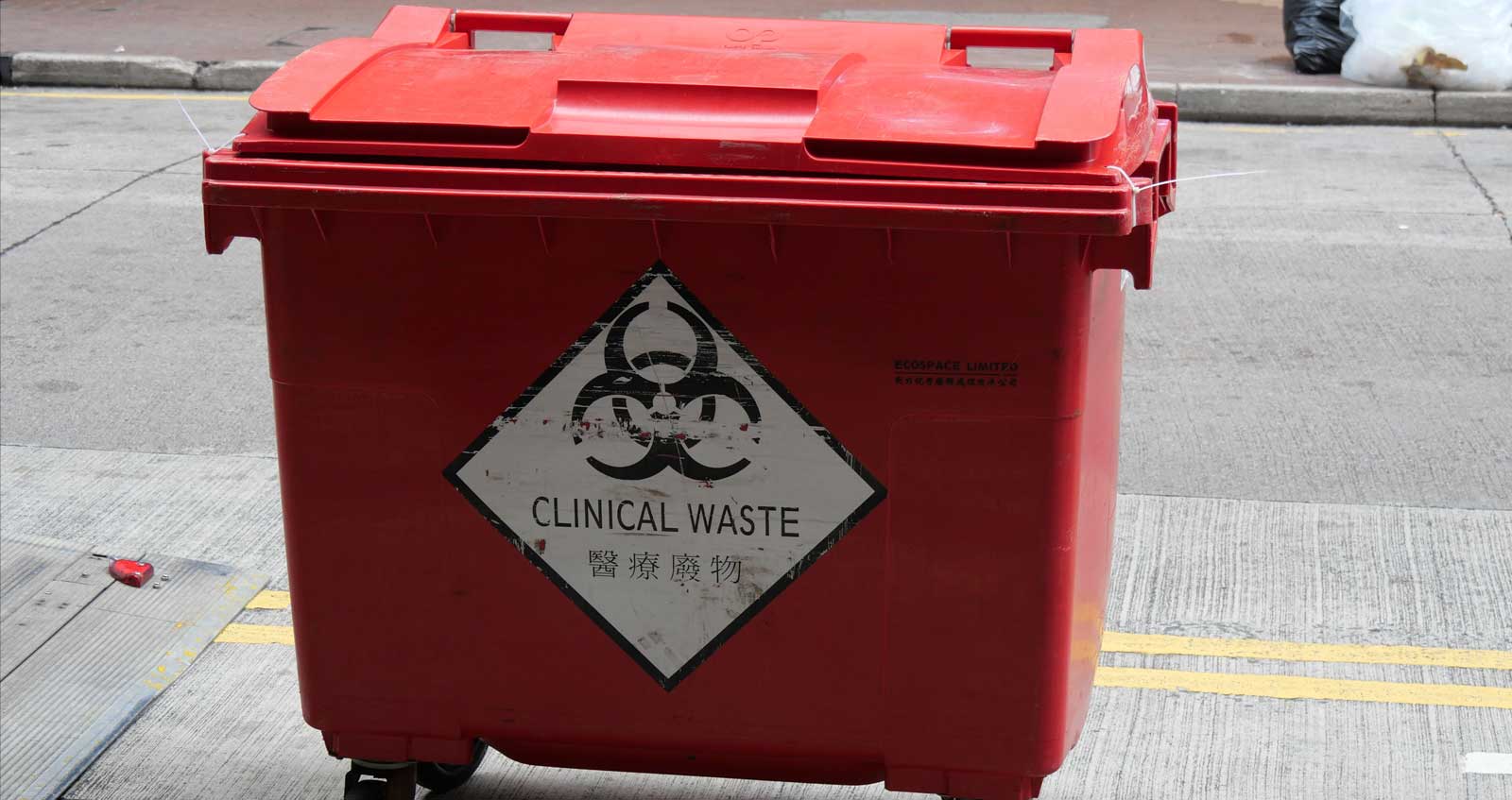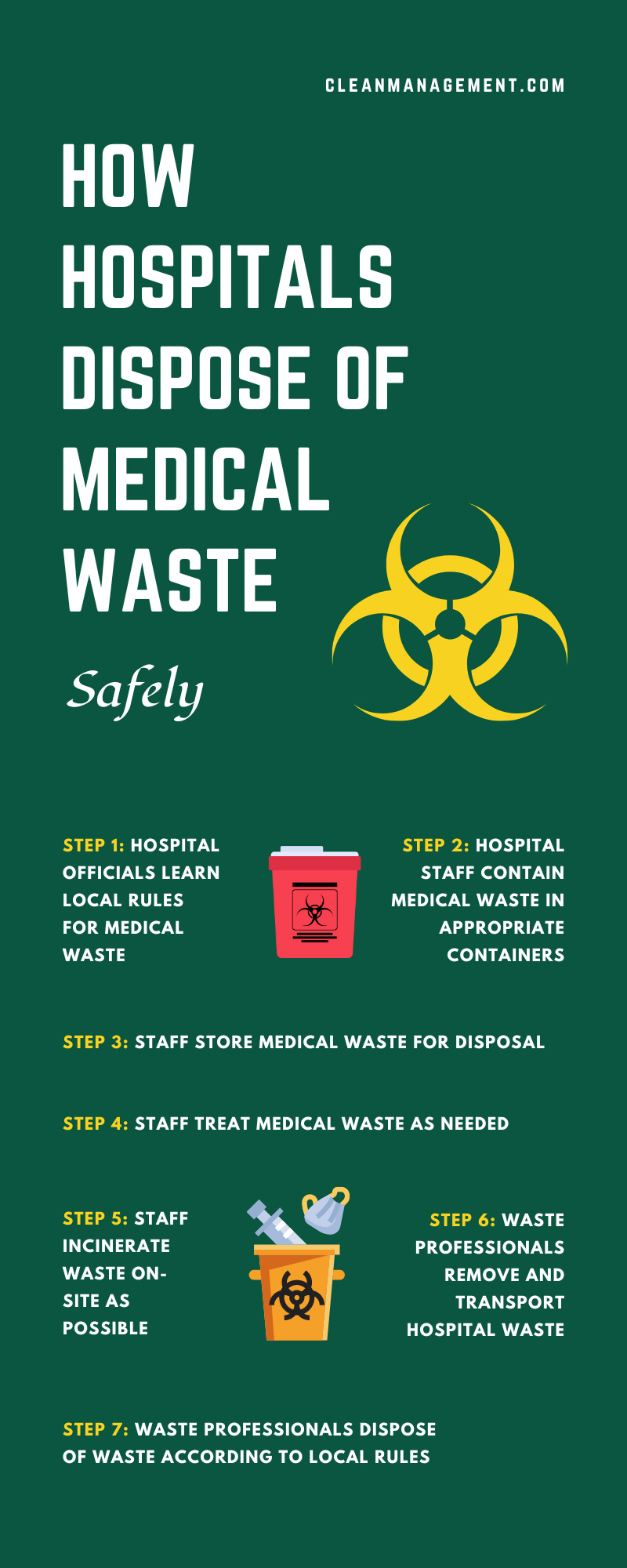Streamlined Medical Waste Disposal Services: Concern for Public Health
Streamlined Medical Waste Disposal Services: Concern for Public Health
Blog Article
Navigating Medical Waste Disposal: Necessary Providers for Health Care Facilities
Health care facilities, whether small facilities or huge medical facilities, are turned over with the obligation of handling, treating, and disposing of a wide array of clinical waste streams. Recognizing the important solutions that support medical waste disposal is not simply an issue of compliance but likewise a basic part in protecting public wellness and environmental well-being.
Regulatory Conformity Assistance
For health care facilities, guaranteeing regulatory conformity assistance is necessary to maintain appropriate handling and disposal of clinical waste. Sticking to regulations stated by organizations such as the Environmental Security Agency (EPA) and the Occupational Safety and Health Administration (OSHA) is important to protect against ecological contamination, safeguard public health, and stay clear of potential legal effects. Regulatory conformity support supplies healthcare facilities with guidance on just how to properly segregate, shop, transportation, and take care of numerous kinds of clinical waste in conformity with regional, state, and federal policies. This assistance consists of assistance in producing and carrying out detailed waste management strategies, conducting normal personnel training sessions, and executing audits to make certain recurring conformity. By partnering with governing compliance specialists, medical care centers can stay current on developing regulations, minimize dangers linked with inappropriate waste disposal, and ultimately add to a safer and much more lasting environment for all.
Waste Segregation Advice

Healthcare facilities need to give clear standards and training to personnel on exactly how to segregate waste properly. This includes separating general waste from dangerous products such as sharps, contagious waste, drugs, and chemical waste. Color-coded bins, labels, and signs are typically utilized to assist in waste segregation methods. Normal audits and monitoring of waste segregation procedures are important to identify any type of issues and make necessary enhancements.
Collection and Transport Services

Correct collection and transport services are necessary components of the clinical garbage disposal procedure in medical care facilities. These services make sure that dangerous products are taken care of securely and in conformity with laws to safeguard both the atmosphere and public wellness. Healthcare centers depend on specialized waste monitoring business to supply efficient collection and transport solutions tailored to their requirements.
Medical waste collection includes segregating different types of waste at the point of generation, making use of color-coded bins or bags to compare general, unsafe, pharmaceutical, and other waste streams. Educated personnel should execute this task to stop contamination and ensure appropriate disposal. Once collected, the waste is carried in committed vehicles outfitted to deal with unsafe materials securely. These cars comply with stringent security standards and look at here now comply with assigned paths to accredited treatment facilities for disposal with techniques such as incineration, sterilization, or landfilling.
Therapy and Disposal Solutions
In the realm of medical waste disposal for healthcare facilities, after the vital phase of collection and transportation solutions, the emphasis moves towards carrying out effective treatment and disposal options. Therapy options typically include processes such as autoclaving, which uses steam under pressure to disinfect the waste. This approach is generally used for contagious waste that has to be provided non-hazardous before disposal. Another widespread therapy technique is incineration, where waste goes through high temperatures in controlled setups to minimize its volume and get rid of microorganisms.
Disposal solutions encompass the last action in the medical waste administration process. Recycling and resource recovery are likewise getting traction as lasting disposal options for specific kinds of clinical waste products.
Efficient treatment and disposal options are extremely important in ensuring compliance with regulations and guarding public wellness and the environment. Medical care centers have to thoroughly review and select appropriate approaches that align with their waste management goals and sustainability campaigns.
Staff Training and Education

To efficiently manage clinical garbage disposal in health care facilities, extensive staff training and education play an important role in ensuring adherence to regulative demands and keeping a secure atmosphere. Correct training furnishes personnel with the knowledge and skills needed to manage various sorts of clinical waste, segregate them appropriately, and package them safely for disposal. By enlightening staff members on the dangers related to improper handling of medical waste, facilities can pop over here decrease the possibility of mishaps, contamination, and regulatory infractions.

Final Thought
To conclude, healthcare facilities count on essential medical waste disposal services to make certain governing conformity, proper waste partition, safe collection and transportation, efficient therapy and disposal, in addition to personnel training and education. These services play an essential duty in maintaining the wellness and safety of both medical care workers and the basic public, highlighting the relevance of appropriate management of medical waste in medical care setups.
For healthcare centers, making certain regulative compliance support is necessary to maintain proper handling and disposal of medical waste. Waste partition includes classifying various kinds of clinical waste to ensure proper handling, treatment, and disposal. This consists of her explanation dividing general waste from dangerous products such as sharps, infectious waste, drugs, and chemical waste.Medical waste collection includes setting apart different types of waste at the point of generation, utilizing color-coded bags or bins to distinguish between general, unsafe, pharmaceutical, and various other waste streams.In the realm of medical waste disposal for health care centers, after the vital stage of collection and transportation solutions, the emphasis changes towards implementing reliable therapy and disposal remedies.
Report this page